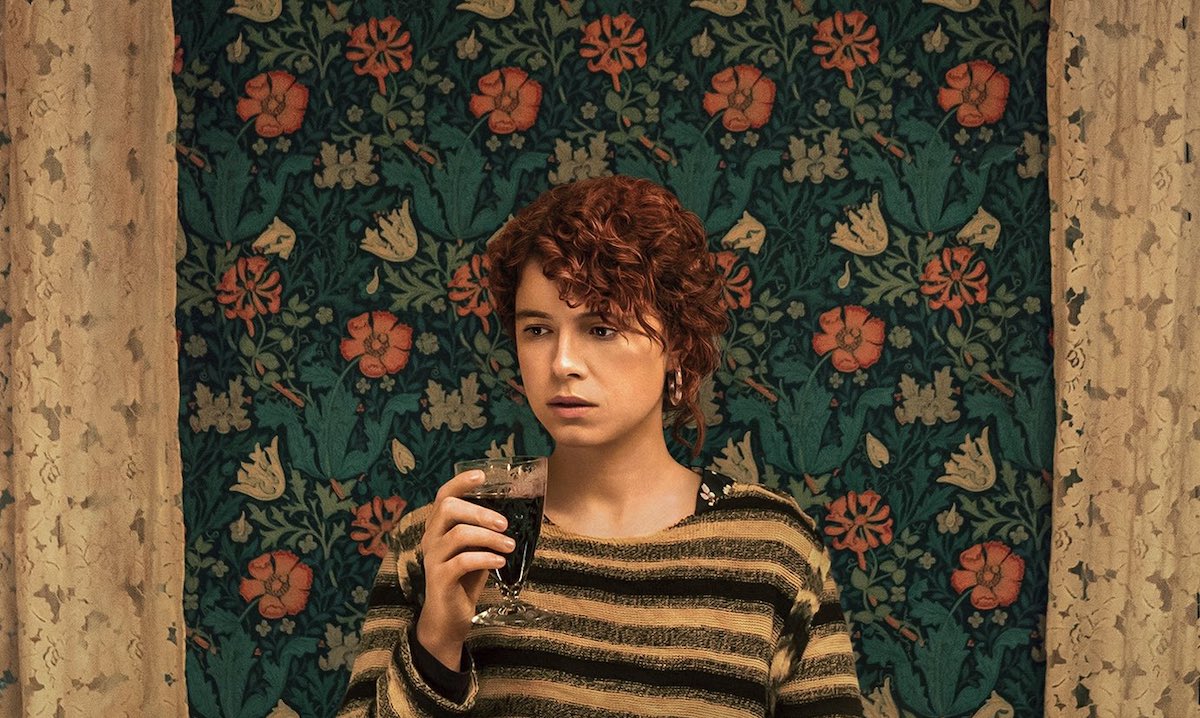
Due to the closure of major theater chains across the world, Netflix became a haven for film-lovers last year. As the dominant streaming service, people flocked to see what kind of exclusives were available to watch at the click of a button. With major delays upending big blockbuster releases, countless streaming services had to step their games up.
While Netflix failed to deliver copious amounts of big-budget thrills, it did manage to offer plenty of entertainment in other ways. Generally speaking, the streaming giant excelled when it came to prestige dramas, documentaries, and smaller indie movies. Considering the quantity of Netflix originals, this statement could warrant some debate. Chalk that up as a positive; it just means that the competition was fierce.
The competition was so fierce that this list will likely look very different from a similar list. With over 100 original releases, it’s safe to say that there’s enough variety to satiate the average viewer. At the same time, that massive selection can be daunting for somebody looking for something to watch, so why not give readers something to make the process a little easier? Below, you’ll find a list of the ten best Netflix original films of 2020 according to Taste of Cinema.
1. The Trial of the Chicago 7
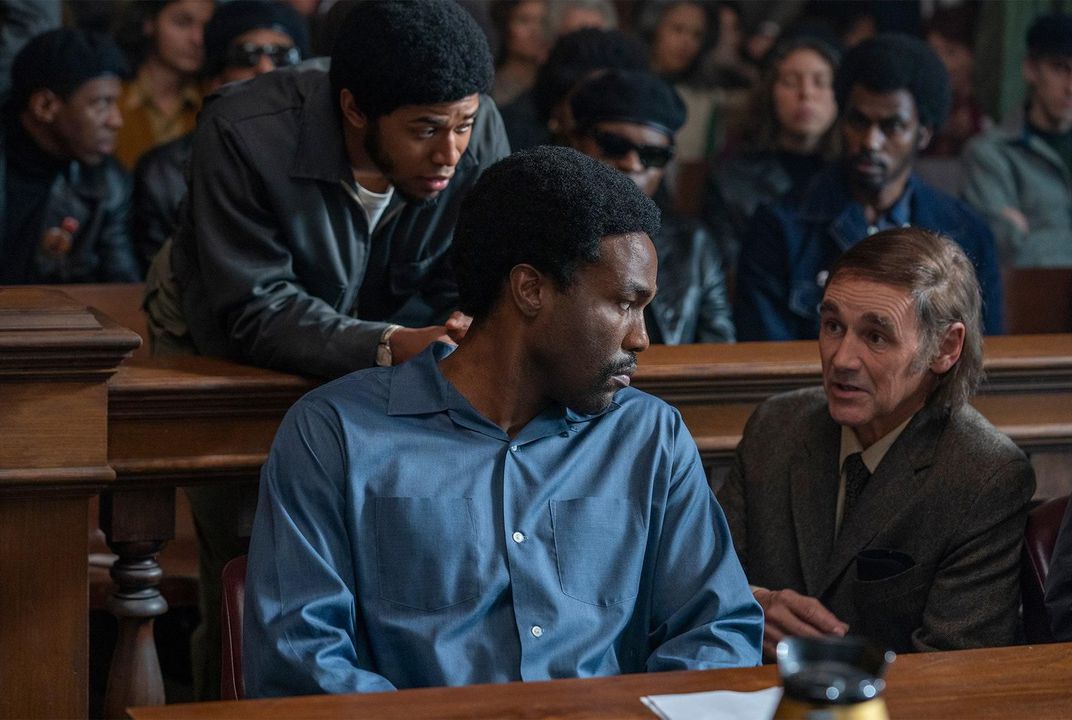
Aaron Sorkin’s distinctive voice has been part of cinema for decades. His dialogue-heavy writing style helped him earn an Oscar for his work on The Social Network. When it comes to screenwriting, there’s nobody quite like Sorkin. That being said, his directorial skills are not as well-established. He made his directorial debut less than five years ago, and because of that, people tend to believe that the jury is still out on Sorkin’s mastery behind the camera.
Molly’s Game wasn’t a bad way to transition into directing, but it also didn’t perform as well as certain Sorkin collaborations from the past. It’s hard to say the same thing about The Trial of the Chicago 7. With releases like The Social Network and Moneyball, the bar is obviously sky-high. Still, the most recent Sorkin project comes at you like a hurricane and leaves a lasting impression that matters.
Surprising nobody, The Trial of the Chicago 7 largely excels because of whip-smart writing. Fans of Sorkin don’t tend to come into his movies expecting anything less. At the same time, the film’s success comes as a result of more than just a stellar script.
The political drama also happens to feature one of the greatest ensembles of last year. Sacha Baron Cohen is getting the most attention for his work, but he’s certainly not the only one pulling his weight. Eddie Redmayne, Jeremy Strong, Yahya Abdul-Mateen II, Mark Rylance, Frank Langella, Joseph Gordon-Levitt, and Caitlin Fitzgerald all come together to ignite a set of metaphorical fireworks. They read their lines with confidence; they seem to know the script front-and-back. They deserve as much credit as Sorkin.
So do the people behind-the-scenes. The Trial of the Chicago 7 is a rare cinematic accomplishment where everything just works. The cinematography is beautiful, the editing is meticulous, and the score is grandiose. It might sound like we’re just naming off a series of cinephile buzzwords, but don’t be fooled – each of these elements matter. Excuse the cliché, but this really is the whole package.
2. Da 5 Bloods
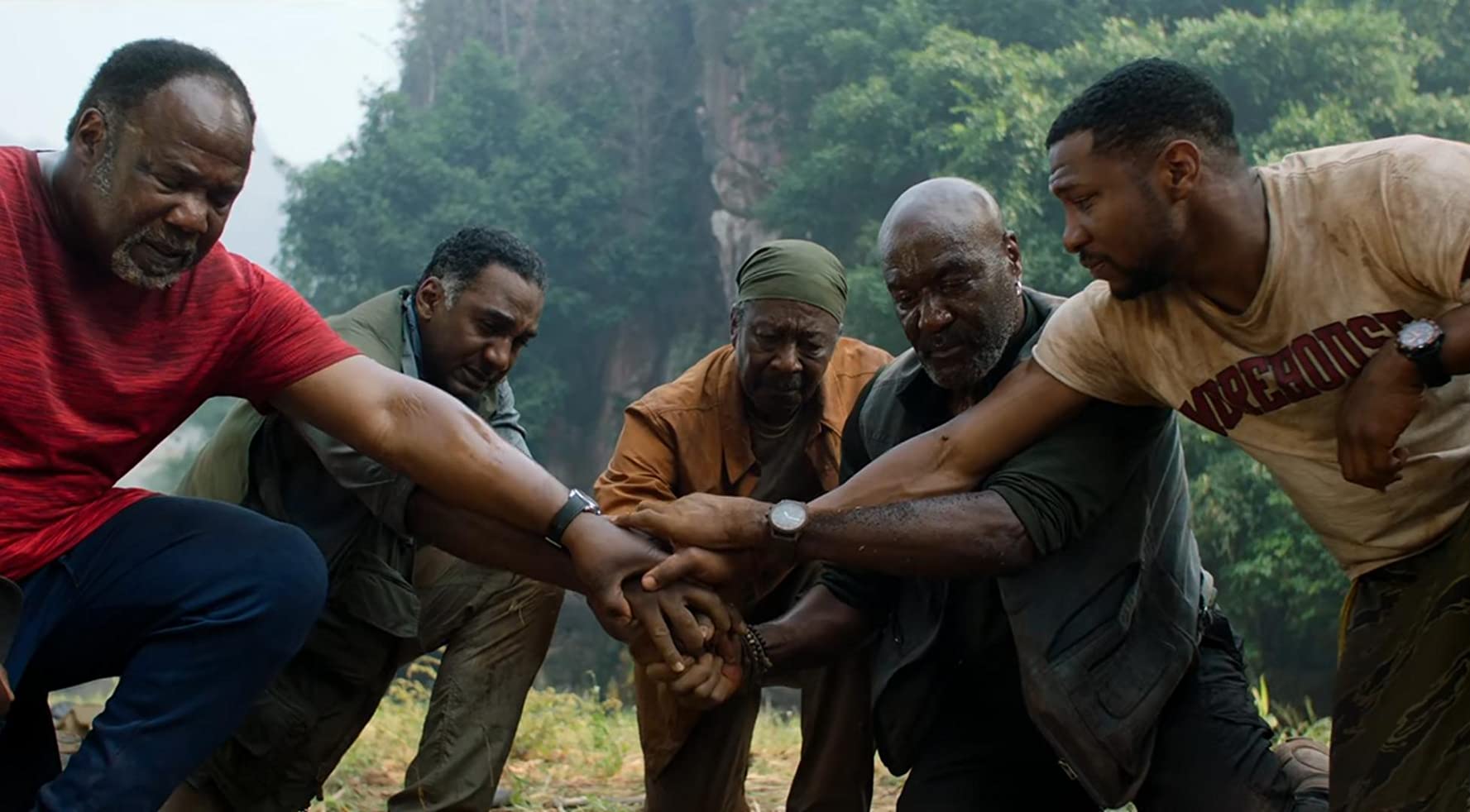
Spike Lee is one of the most acclaimed filmmakers working today, so it’s only natural that he earns a spot on this list. Following BlacKkKlansman couldn’t have been an easy task, but with the release of Da 5 Bloods, Lee proved that lightning certainly can strike twice. In the case of his career, it seems as though lightning can strike an almost indefinite amount of times.
Da 5 Bloods is indisputably a Spike Lee joint. It cleverly balances drama and humor, it features an outstanding cast of black actors, and it tells a story that matters. Despite the warm feeling of familiarity, the director still manages to cover plenty of uncharted territory.
This is not Lee’s first war movie. In 2008, he directed Miracle at St. Anna, an overly ambitious slog that stands out as one of his worst films. Da 5 Bloods is so different because it places the focus on the characters rather than any sort of grand event. By definition, this is a war drama, but the focus isn’t on any particular war. It’s on the people.
Thankfully, the film features a cast of characters that are bursting with personality. Each of the characters adds an additional layer to a story that already has plenty to talk about. Lee knows how to do social commentary, but it’s great to see him use the people in his story to get his point across in new and exciting ways. It might not be a career-best, but it’s an outstanding piece of work nonetheless.
3. I’m Thinking of Ending Things
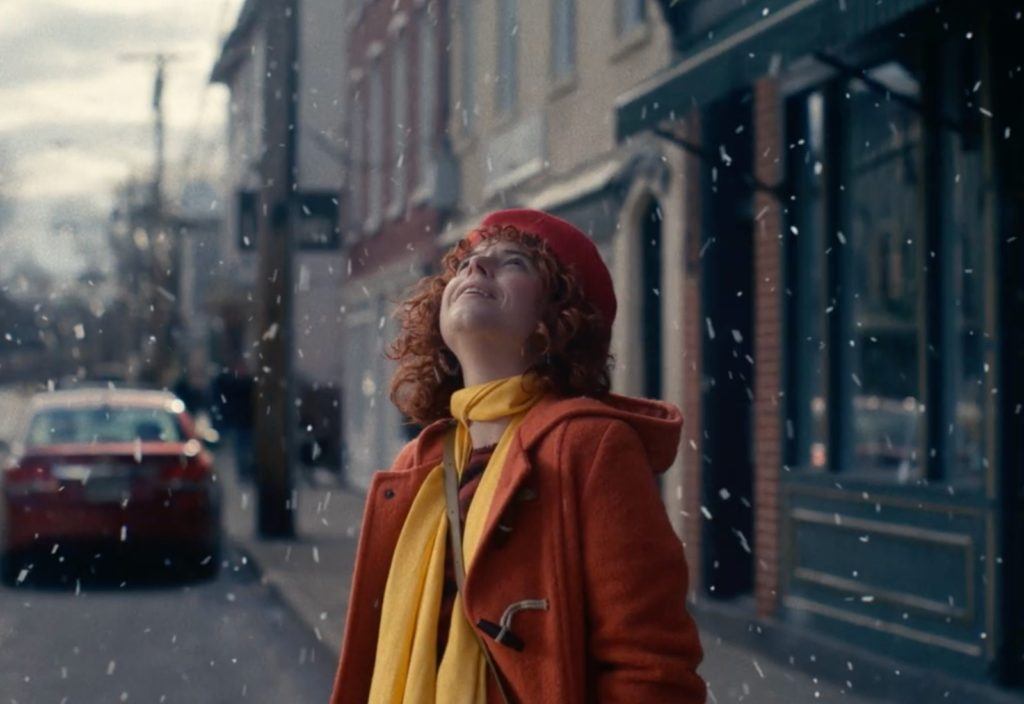
A large majority of Netflix originals from last year sought to appeal to just about every type of viewer on the planet. They often came wrapped in tidy bows for viewers to appreciate. They wanted to entertain and educate, but they didn’t necessarily want to challenge anybody. This isn’t a criticism. Different films have different purposes, and that’s perfectly okay. However, arthouse fans may have been disappointed by the more mainstream output.
On the bright side, they had at least one movie to mess with their heads, and of course it came from Charlie Kaufman. As always, the esoteric director proved that he’s willing to alienate anyone and everyone for the sake of art. This would be a massive negative if his art wasn’t so damn gripping.
I’m Thinking of Ending Things doesn’t play fair. The film constantly sets something up only to pull it out from under you. The general public expects cinema to follow a set of guidelines. When these guidelines are ignored, things should, in theory, come crashing down. That’s not the case here. Kaufman’s latest creation doesn’t even pretend to understand mainstream cinematic conventions.
That’s probably because it doesn’t want to understand mainstream cinematic conventions. I’m Thinking of Ending Things is obtuse, but it’s not impossible to understand. Despite the fact that it follows its own set of rules, there’s a story with a beginning, middle, and end. That story may take several detours, but there’s clearly a purpose here. It’s just up to the viewer to use a little extra brain power.
4. Ma Rainey’s Black Bottom
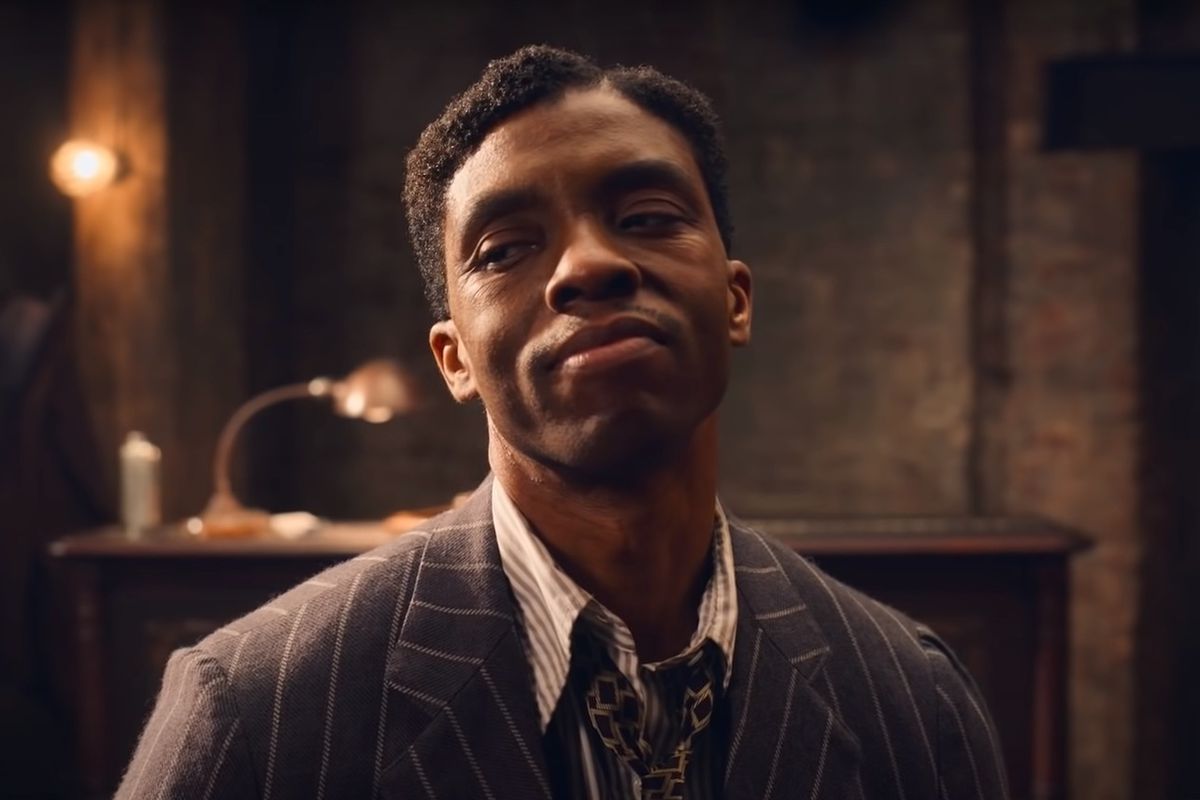
When plays transition from the stage to the big screen, results often vary. For example, Fences, Doubt, and Frost/Nixon all prove that the big transition is very possible. Then you’ll run into a movie like Cats or Down to Earth, and you’ll wonder why filmmakers even try to adapt things that clearly don’t work in a different format. It’s an excessively frustrating experience, but it’s part of being a film-lover.
Considering the success of the previous August Wilson adaptation, it should be no surprise that expectations regarding the follow-up were sky-high. Ma Rainey’s Black Bottom looked to be surefire hit, but again, there will always be lingering suspicions when it comes to these sorts of endeavors. Nine came from an award-winning director and starred multiple Oscar winners; look how that turned out.
Any and all worries were put to rest when the film debuted on Netflix toward the end of last year. Ma Rainey’s Black Bottom floored critics thanks to career-defining performances and biting dialogue. There’s a whole lot more talking than action, but that kind of comes with the territory. Given the quality of the writing, it’s easy to be engaged. The brilliant performances don’t hurt either.
5. Athlete A

One of the primary purposes of cinema is to entertain. That’s why the Marvel Cinematic Universe continues to rake in unbelievable amounts of money. That’s why the Fast & Furious series is going on its ninth installment. That’s why the first live action Pokemon movie features a talking Pikachu played by Ryan Reynolds. People frequently seek out movies for escapism. Life is hard, so why not set aside some time to watch a giant gorilla fight a giant lizard?
Despite the fact that this is often the focal point, cinema serves other purposes as well. Just like literature, cinema can also inform and persuade people. That’s why we have Athlete A, a rather uncomfortable viewing-experience that nevertheless serves its purpose dutifully.
The documentary, which focuses on the sexual abuse scandal involving Larry Nassar, seeks to bring exposure to surprisingly frequent cases of hierarchical assault. Since Nassar, a well-known doctor, was in a position of power, he was able to freely manipulate his patients. This allowed him to put them in increasingly uncomfortable situations where consent was of little consequence or concern.
It’s all rather rage-inducing. Athlete A makes a concerted effort to inform viewers that Nassar got away with too much for too long. It’s only natural that this kind of information might ruffle a few feathers, but those feathers need to be ruffled. The goal here is to shed light on an overarching issue, and in that regard, it easily succeeds.